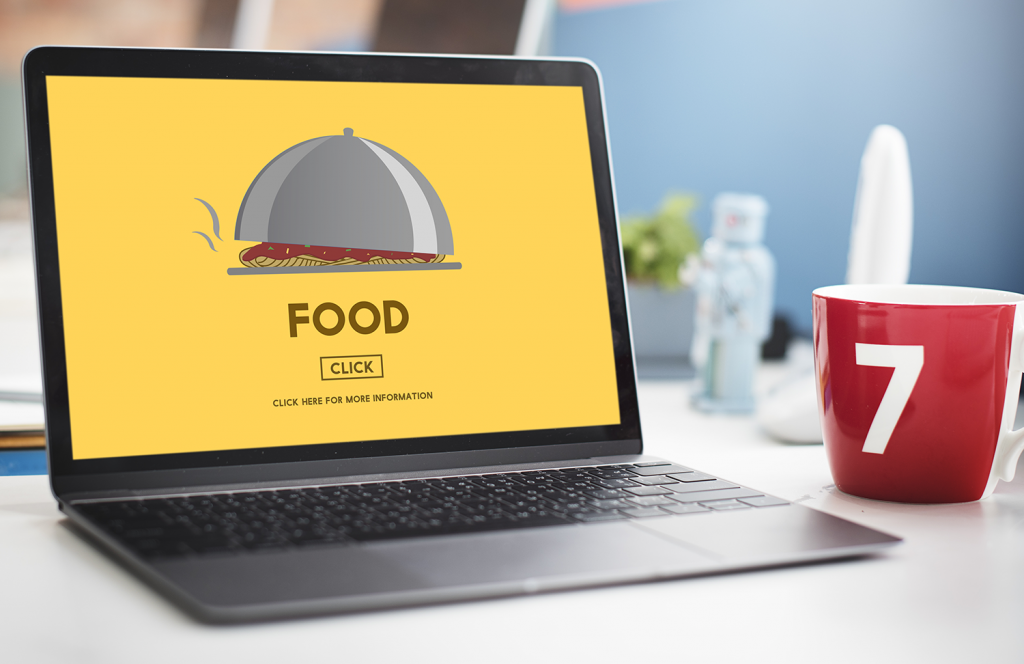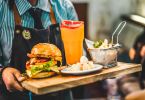
Of all the factors Google looks at before ranking a website on a search result, one of the biggest is backlinks. Sure, good content can help a website rank, along with proper search engine optimization (SEO) backend work and making sure all of your tags are on point, but having outside links pointing to your website is one of the most powerful metrics they use.
So, if you want your restaurant to rank higher than your competitors in search results, you can’t ignore the power of links pointing to your website. The question becomes: how do you get those links?
What is Link Building?
It’s very unlikely that other websites will just start linking to your website just because you exist. While that would be really nice, it isn’t how the world of link building works and even less so for the bar & restaurant industry. You need to go out of your way and put in extra effort in order to get links directed at your website.
The base of link building is promoting your website to other website owners in hopes they see what you have to offer as a useful resource to their audience and provide a hyperlink to your site. Google then sees that link as a form of support and trust for your website, and will increase your rankings on relevant searches.
In order to get those links, you need to reach out to other websites. Even if you have wonderful resources on your website, other websites will probably never see them unless you point them out. You need to contact them and coordinate on the best way to incorporate your resource for their audience. That could mean writing a guest post that links back to your original resource, including a link to your website on a list of other helpful resources, or even copying the original resource and giving credit to your website.
For example, let’s say you have an infographic about the dangers of e. coli and how to prevent it. Very applicable to both the restaurant world and individuals who cook. You reach out to a cooking website and present the infographic.
You could:
- Write a guest post all about diseases passed through foods, linking to your infographic as a resource during a section about e. Coli.
- Have the infographic listed and linked to as part of a page all about different food based diseases and allergies.
- Let the website post the infographic as a whole on a page and then link back to yours as the original.
All of these methods would lead to a powerful link to your website, meaning a boost to your rankings and even an increase in your traffic if the website’s audience responds well to the resource.
What Isn’t Link Building
About a decade ago, SEO was a wild west frontier, where SEO “professionals” were finding loopholes in Google’s programming in order to get quick boosts to a website. Linking was one of the ways they could get a website on first page results within days. Since those days, Google has fixed all of those loopholes and quick tricks and if they find you doing them, your website will be penalized.
First off, if anybody offers you a ludicrous amount of links for a small amount of cash, don’t take it. Something like “500 links for $100” is a scam and will end up hurting your website. Typically, these scams work by a person buying up 500 domains/websites that have no purpose and just link to other websites. They have no trust with Google, and getting that many links that quickly is a red flag.
Another thing that isn’t link building is getting your business and website on directories. While these sites typically link to websites, they almost always “nofollow” the link, meaning that while it is a hyperlink, it tells Google not to count it as a link to the website, resulting in no change with Google in rankings. Getting your business on relevant directories is always good, but don’t expect to see your website rank better because of it.
How to Link Build for a Restaurant
Restaurants present a unique challenge in the world of link building. Many don’t have the resources other businesses have in online content, are typically very local focused, and are very limited in what industries they want links from. It’s not very useful for a restaurant to get a link from an accounting website, as they are completely different industries. To help you out, here are some tips and strategies to get started.
Build Linkable Resources
Just because you have a blog doesn’t mean it will be easy to link build with. High quality content is key to running a successful link building campaign. It’s going to be very hard to link build if your content is solely self-promotional. You need unique and truly helpful content that will interest others.
Here are just a few ideas of content you can produce that can later be used for link building.
- Recipes of popular dishes/drinks you serve or similar to your style of restaurant.
- Cooking tips for both amateurs and the more experienced cooks.
- Where and how to get the best ingredients.
- Travel guides to the local area for both tourists and locals covering a variety of topics, not just food.
Guest Post for Food Related Websites
Everybody loves food, and many people have made their living writing about food online. Many of these people range from amateur bakers in the kitchen to professional chefs at five star restaurants, but all of them are looking for more content on the website. It’s impossible for them to know all of the tricks of the trade, and your restaurants has a few things to share with the world, in the form of guest posting.
First, find food websites that have a decent following online and have been around for awhile. Then, look through their blog and see what kinds of stuff do they write about. Find topics they haven’t covered very much, but still relates to their overall theme. You wouldn’t want to write about fish fillet techniques to a site dedicated to baking desserts.
Then, pitch a guest post to them about something that you can include a link to your quality content within. If they accept, write a great post for their website and include relevant links to resources, including one to your resource. Hopefully they like it, publish the post and poof! You have a link.
Sharing Recipes
Do you have a special sauce, dish, drink, or salsa that your restaurant is famous for? Cooking websites are always looking for new recipes to share with their readers, so don’t be afraid to share yours. If you are afraid of losing customers because they can make your specialty item themselves, slightly change the recipe so it’s not perfect, but close. Even if you give the exact recipe, it’s likely it will still not taste right because people make mistakes cooking or don’t use as fresh of ingredients as you do. Also, your restaurant offers more than just food – it offers an entire experience that people just can’t get at home.
Anyways, share the recipe and then ask for a link back to your website. This could come in the form of “Recipe courtesy of X Restaurant” linking to your homepage, or even have the recipe on your blog for a direct link to that.
Reviews from Food Critics
In every town and city, there are food critics. People who think their pallet is more refined than others, and share their opinions on their websites. Food critics are always looking for a free meal, so offer them one in exchange for a review. Make sure you cook your best for the critic, as a negative review is never good, and then ask them to include a link to your restaurant as part of the review. If everything goes well, you get a positive review and a link for the cost of a single meal.
Link Building Takes Time and Effort
As with anything in digital marketing and SEO, link building takes time. You can’t expect immediate results from a single link. In order to see true results, you need to be consistently building links for a long time alongside other marketing efforts.






